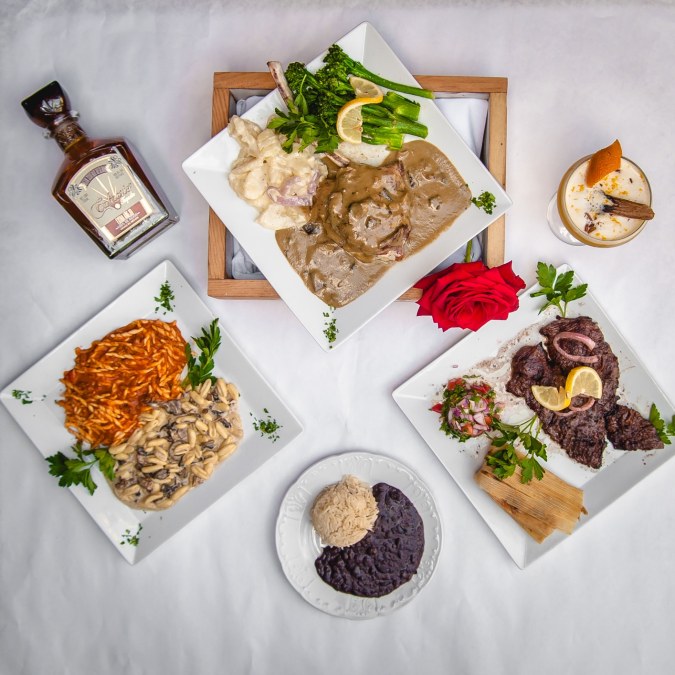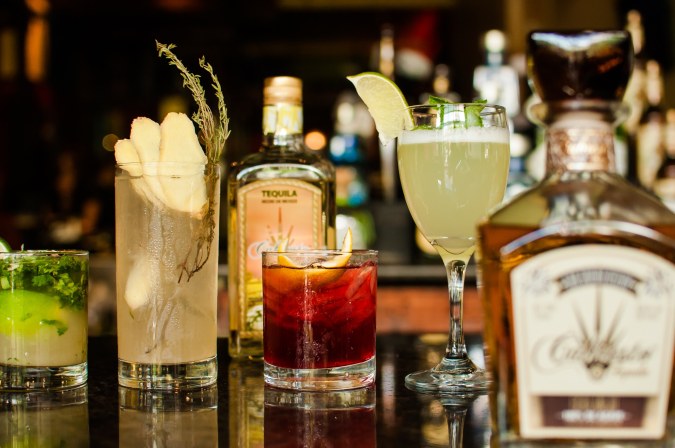Among the national media’s numerous “Detroit is back” stories have been dispatches from the city’s now-hip food and drink scene, concentrated mostly in the historically Irish Corktown neighborhood. Most will mention that it all started with Slow’s Bar BQ – almost always packed with suburbanites, tourists and parachute journalists who line up for a taste. But look further southwest, especially in the city’s historic Mexicantown barrio, and you’ll find a Latino community that has helped sustain and create food trends in Detroit for decades. And a new generation of restaurateurs and distillers look to push Latino food further into the regional – and hopefully, national – scene.
Latinos’ love affair with the Motor City goes back more than a century when they joined the waves of other immigrant communities in search of living wages in the then-booming automotive industry. Some of the earliest Latino Detroiters settled on Bagley Street, known as La Bagley; there stands Mexican Village Restaurant, which has served its cheesy Tex-Mex fare since 1958 and is one of the oldest Mexican restaurants in Michigan.
Waves of mostly Mexican immigrants settled in on Bagley and the neighborhoods southwest of it in the ensuing decades, as Detroit suffered population decline and shrinking revenue. Nowadays, the heart of Latino Detroit is Vernor Highway, which starts in the shadow of the infamously abandoned Michigan Central Station a few miles from the Dearborn border. Tucked between the Gothic churches, old-school Coney diners and sprawling railroad yards are the hand-made tamales of Nuevo Leon, the aroma of pan dulce from Sheila’s Bakery, and a number of popular mercados, which food desert-dwelling Detroiters of all ethnicities prefer over the ‘burbs. One of the newer spots is El Nacimiento, which Rodrigo Padilla opened in 2001 and named after his hometown in Jalisco. The restaurant immediately became a hit for winter-friendly caldos, carne asada tacos, and fresh-squeezed orange juice.

Another Vernor staple are food trucks. El Parian specializes in pineapple-flecked al pastor, which it stuffs into corn tortillas for tacos, bolillos for tortas, and flour tortillas for burritos; those same pineapple bits can also be found in the truck’s Hawaiian burgers (which doesn’t have al pastor but totally should). Mariscos Salpicon, meanwhile, started as a lonchera and is now a popular night club with plans for expansion; it introduced Detroit hipsters to the hangover-curing coctel de camarones, all tomato-y and chilled and perfect.
Detroit’s Mexican cuisine is more than just traditional dishes, though. El Barzon specializes in Mexican and Italian food, featuring pastas and dishes from chef-owner Norberto Garita’s home state of Puebla and inspired by his many years of working at a high-end Italian eatery in the suburbs. El Barzon’s most famous dish is the mole poblano – common across the United States, but still considered a delicacy for Detroit. Here, Garita’s mole has a rich nuttiness and a hint of spice balanced out with bitter cocoa and usually punctuated with the tang of pomegranate seeds.
Mexicans have even tackled Detroit’s beloved snacks scene (did you know Detroit prides itself on its potato chip game? I didn’t until I moved here). Mangonadas del Barrio opened in 2011 in the Springwells Village neighborhood before establishing a second spot in Mexicantown in 2016. It’s named after the classic Mexican street snack of frozen mangos drenched in spicy chamoy sauce and chili powder. Usually more popular in warmer climates, mangonadas have taken off in Detroit along with Dorilocos, bags of chips cut open and loaded with as many toppings as you can possible fit – think mango chunks, cucumber and jícama slivers, peanuts, chamoy sauce, jalapeños, pickled pig’s skin, even gummy bears.

But the most exciting development in Detroit’s Mexican food scene is at the higher end. The short-lived, but ambitious La Dulce tried to get Detroiters to imagine a Mexican menu without combo platters; the recently opened Bolero in Midtown showcases the beauty of Argentine steaks, Chilean wines and Peruvian ceviche. And the Lopez family – most famous in Detroit for their long standing Lopez Tires – has imported its own tequila brand, Tequila Cabresto since 2007. Silverio, son Tony, and daughter Sonia, have successfully introduced spicy reposados, smooth silvers and sweet añejos on the shelves of hotspots like speakeasy Bad Luck Bar, gourmet slider joint Green Dot Stables and the critically acclaimed Selden Standard – its refreshing, citrus-infused Paloma has me longing for summer just thinking about it.
Other Latino culinary traditions dot Detroit—Vernor Highway also is the home for Antojitos El Catracho (great Honduran food) and El Caribeño (awesome Dominican), while a short drive away are the Venezuelan delights of El Rey De Las Arepas. Anthony Bourdain himself visited an underground pupuseria in a 2013 episode of Parts Unknown. And as more immigrants come, and their children decide to open up their own spots, Latinos will continue to help Detroit’s foodways thrive.




